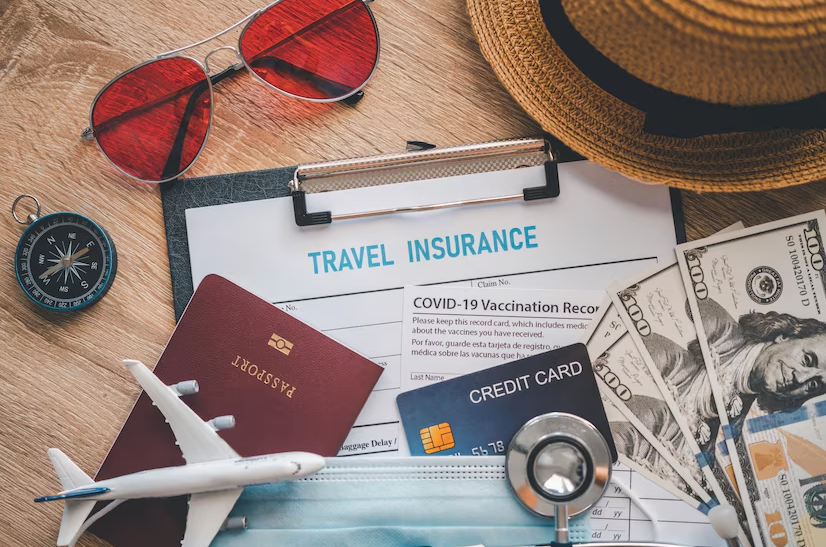Traveling is an exciting adventure, but it comes with its own set of risks. Choosing the right travel insurance is essential to protect yourself from unexpected events and expenses. In 2024, finding affordable travel insurance doesn’t mean compromising on coverage. Here’s a guide with top tips to help you choose the best and most cost-effective travel insurance for your next trip.
Why Travel Insurance Is Important
Travel insurance provides protection against a range of issues that can arise during your trip, including:
- Medical Emergencies: Coverage for unexpected health issues or accidents.
- Trip Cancellation: Reimbursement for non-refundable costs if you need to cancel or cut your trip short.
- Lost or Delayed Baggage: Compensation for lost, stolen, or delayed luggage.
- Travel Delays: Coverage for additional expenses due to delayed flights or other disruptions.
Tips for Choosing Affordable Travel Insurance
1. Assess Your Travel Needs
Before selecting a policy, evaluate your travel plans and needs:
- Destination: Different destinations may require different coverage levels. High-risk destinations might need more comprehensive coverage.
- Duration: Longer trips may require higher coverage limits.
- Activities: If you plan to engage in high-risk activities like skiing or scuba diving, ensure your policy covers these.
2. Compare Policies
Take the time to compare different travel insurance policies. Key aspects to compare include:
- Coverage Limits: Check the maximum amounts covered for medical expenses, trip cancellations, and baggage.
- Exclusions: Be aware of what is not covered by the policy, such as pre-existing conditions or specific activities.
- Deductibles: Compare deductibles and choose one that fits your budget.
3. Look for Essential Coverage
Ensure that the policy covers the essentials:
- Emergency Medical Expenses: This should include hospitalization, doctor visits, and medication.
- Trip Cancellation and Interruption: Coverage for non-refundable expenses if your trip is canceled or interrupted.
- Lost or Delayed Baggage: Compensation for lost or delayed luggage and personal items.
4. Consider a Multi-Trip Policy
If you travel frequently, a multi-trip or annual policy might be more cost-effective than purchasing insurance for each individual trip. These policies often offer better rates and comprehensive coverage for multiple trips throughout the year.
5. Check for Discounts
Look for available discounts that can reduce your premium:
- Bundling: Some insurers offer discounts if you bundle travel insurance with other policies, such as home or auto insurance.
- Group Insurance: If you’re traveling with a group or family, check for group rates that might be more affordable.
6. Evaluate Insurer Reputation
Choose an insurance provider with a strong reputation for customer service and claims handling. Look for:
- Customer Reviews: Read reviews and ratings from other travelers to gauge the insurer’s reliability.
- Financial Stability: Ensure the insurer is financially stable and capable of handling claims.
7. Review Policy Details Carefully
Read the policy documents thoroughly to understand:
- Coverage Limits: Ensure the coverage is adequate for your needs.
- Exclusions: Be aware of any exclusions or limitations that may affect your coverage.
- Claims Process: Understand how to file a claim and what documentation is required.
8. Check for Pre-Existing Condition Coverage
If you have pre-existing medical conditions, ensure the policy provides coverage for these conditions. Some policies offer limited coverage or require additional documentation for pre-existing conditions.
9. Use Comparison Websites
Utilize comparison websites to easily compare different travel insurance policies. These platforms can provide side-by-side comparisons of coverage, premiums, and features, helping you find the best deal.
10. Consider the Cost of Coverage vs. Potential Loss
When evaluating affordability, consider the cost of the insurance relative to the potential financial loss without coverage. Investing in a slightly higher premium might be worth it for comprehensive protection, especially for long or high-risk trips.
Common Questions About Travel Insurance
1. What Does Travel Insurance Typically Cover?
Travel insurance typically covers emergency medical expenses, trip cancellation or interruption, lost or delayed baggage, and travel delays. Specific coverage can vary by policy.
2. Is Travel Insurance Worth the Cost?
Yes, travel insurance can be worth the cost, especially if you encounter unexpected issues such as medical emergencies or trip cancellations. It provides financial protection and peace of mind.
3. Can I Purchase Travel Insurance After Booking My Trip?
Yes, you can purchase travel insurance after booking your trip. However, buying insurance soon after booking can provide coverage for trip cancellation and other issues from the outset.
4. What Should I Do if I Need to Make a Claim?
If you need to make a claim, contact your insurance provider as soon as possible. Keep all relevant documentation, such as medical reports and receipts, and follow the insurer’s claims process.
5. Does Travel Insurance Cover COVID-19?
Coverage for COVID-19 can vary by policy. Some insurers offer specific coverage for COVID-19-related issues, such as medical expenses or trip cancellations due to travel restrictions.
Conclusion
Choosing affordable travel insurance for your international trips involves evaluating your needs, comparing policies, and understanding coverage options. By following these tips and considering the essential features of a policy, you can find the best coverage that fits your budget and ensures a safe and enjoyable journey. Remember to review policy details carefully, check for discounts, and choose a reputable insurer to get the most value out of your travel insurance.


















